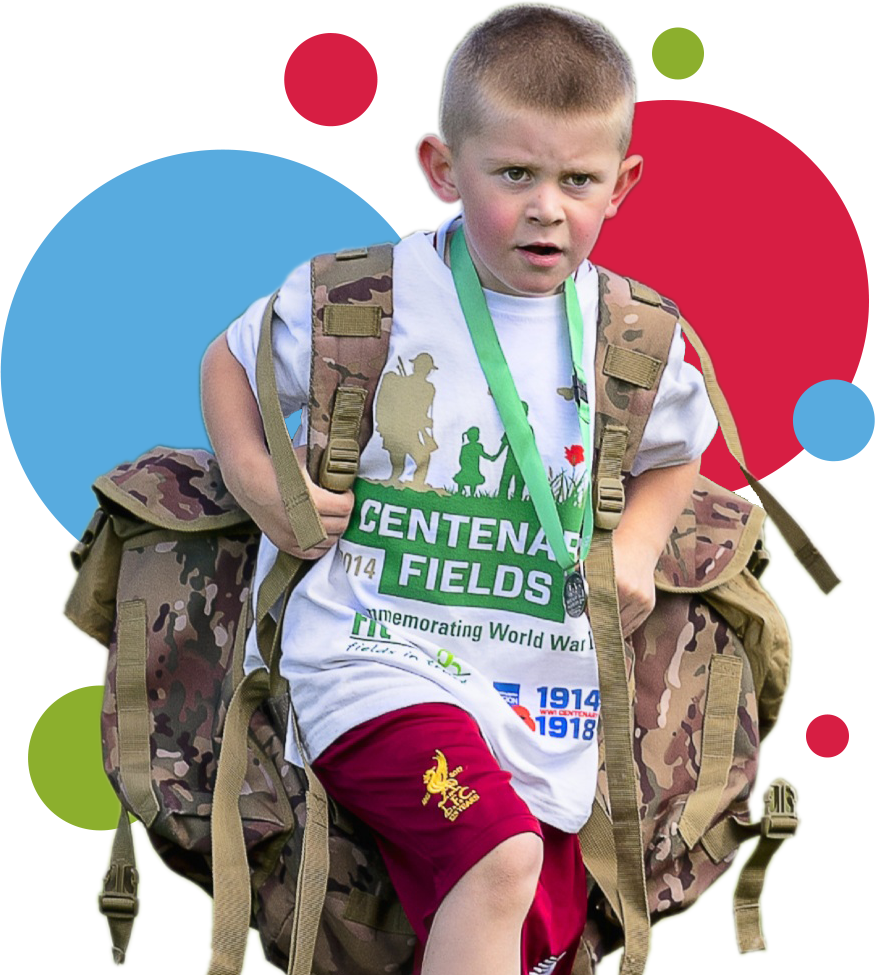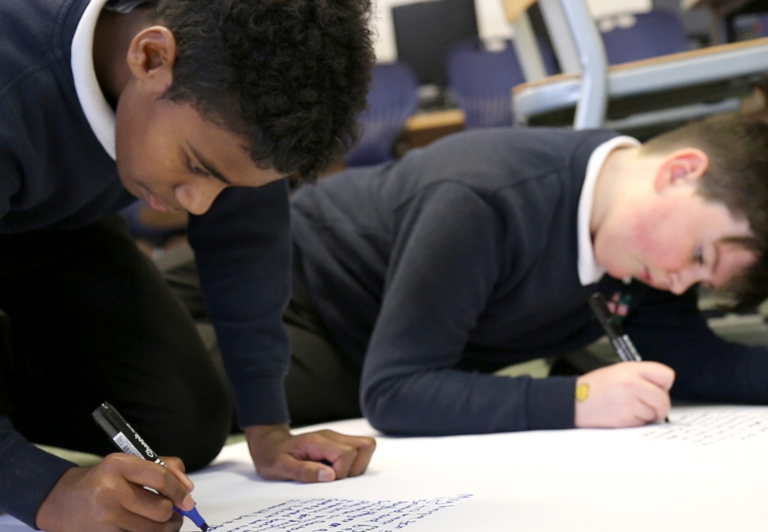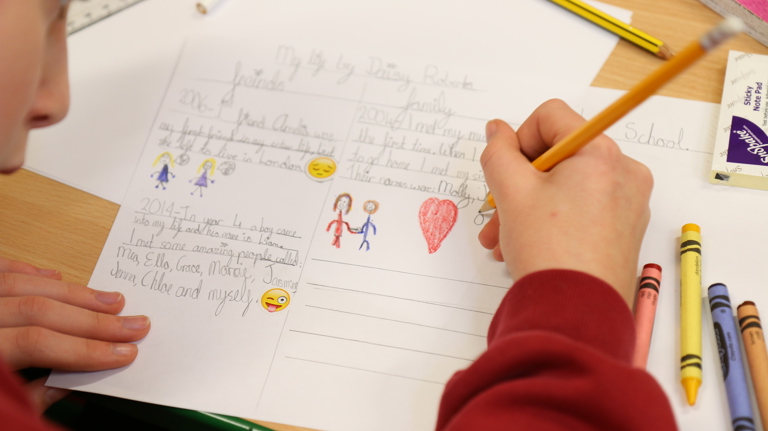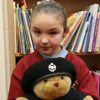What is Case Management?
Case Management is available to schools that have an individual Service child or a very small number of Service children with a specific need related to the impact of their Armed Forces lifestyle. Case Management is a short-term intervention, managed by the SSCE Cymru team, working with schools and local authorities (LA) to identify support that could be accessed to overcome the challenges that the individual child or small groups of Service children may be facing.
Case Management can be accessed by schools who have Service child(ren) who fall under this Welsh Government definition:
A ‘Service child’ has parent(s) or person(s) exercising parental responsibility who is/are Service personnel serving:
Please contact SSCECymru@wlga.gov.uk if you have a Service child(ren) who fall(s) outside of this definition.

The Armed Forces lifestyle can have an academic, social and emotional impact on Service children. These experiences include (but are not limited to) mobility, separation, parental deployment and parental transition. Issues may subsequently arise that require support outside of the capacity of the school and/or local authority. Please see some Case Management examples below.

SSCE Cymru will case manage this support – coordinating interventions, monitoring progress, and measuring the impact with each school. SSCE Cymru may be able to access funding to support these interventions when required. The Case Management support from SSCE Cymru is available for schools to access at any point of the year.

If your school has an individual child or a very small number of Service children who you think may require this support, please contact SSCECymru@wlga.gov.uk to discuss the Case Management process further.
Please also see our Case Management School Guidance document below for further information about the Case Management process.

Service child background: Siblings experiencing the impact of PTSD; the emotional impact of witnessing the effects of PTSD on the parent and the impact this has on the parent engaging with the pupil and supporting them educationally. This has led to pupils experiencing difficulties with accessing learning.
Awarded: £720
Intervention: Release a member of staff to deliver a variety of support programmes targeting, literacy, numeracy, confidence and emotional wellbeing.
Impact: Both children have benefited both academically and socially from the support they have received. The children have felt secure and supported in the knowledge that they have a trusted adult they can speak to at school. They are far more confident and engaged with their learning and enjoy school.
Service child background: Attachment and emotional regulation difficulties linked to separation from serving parents. Before beginning the intervention the pupil struggled to regulate their emotions, particularly following school drop off and separation and during times of change. This would lead to aggressive outbursts followed by feelings of shame and low mood.
Awarded: £420
Intervention: Release an ELSA trained member of staff, with whom the pupil had built a positive rapport, to deliver emotional literacy and positive play intervention to support emotional, social and mental wellbeing and develop strategies to support regulation.
Impact: Emotional literacy sessions allowed opportunities to discuss feelings, emotions, strategies to deal with anger and develop pupil's self-esteem. It became easier to identify potential triggers and implement support before incidents. Pupil has positive strategies in place.
Service child background: Has experienced high mobility, is an EAL pupil, and joined the school during lockdown. Before beginning the intervention, the pupil was extremely shy, uncomfortable when communicating with his peers and teachers, and disengaged from most lessons in school.
Awarded: £500
Intervention: Release a member of staff, with whom the pupil had built a positive rapport, to deliver interventions that aimed to improve the pupil's confidence, communication and wellbeing in school.
Impact: After several weeks of support, the pupil was noticeably more engaged with their learning and peers, and grew the confidence to partake in a PE lesson for the first time since joining the school.
Service child background: Following the deployment of the pupils father the pupil initially experienced attachment difficulties and struggled managing their emotions.
Awarded: £750
Intervention: Release a member of staff to emotional literacy sessions to support the pupil at this time.
Impact: The pupil was able to build a successful relationship with the allocated member of staff so they had a go to person to support in school. Strategies were identified to support emotional management and communication with the deployed parent.

It's ok talking over skype and that but sometimes you just want a hug when Dad is away.


"Being a military child is hard, but it also gets you a lot of new experiences that I wouldn't have experienced otherwise".
Esme-Jane

"For military children they [Mount Street Junior School] do a club called Little Troopers, they've done a Remembrance service, purple up day. We celebrate Holi and Dawali".
Arushi

"My Mum is my parent that is in the Armed Forces. She is a reservist. So when I was younger it was a lot worse, she travelled around a lot. I've lived in the same house my whole life, but she has moved around me. I was in a constant cycle of saying goodbye".
Emma

"My Dad, he's in the Army and he works in the Engineers and he goes away on week days and comes back on weekends"
Emily

"Dad often goes away. It is a bit worrying not knowing where your Dad is going. It does worry me and my sister. Yeah, you just never know when he's coming home".
Joe

"In June or July, my Dad is going away quite far. He's in the Army, he's a chef. Having your Dad gone is so sad."
Josie

"I've lived in many places. So, I was born in Cyprus, after that I've been to Germany, then I went to this place called Stafford. Then another place which is Wales."
Dominic

"I've moved seven times in fourteen years."
Lilia

"Now we've got a forever home. I never have to worry about leaving or how long until I am leaving. I feel like I belong here a lot more, that's always great."
Oliver

"As soon as we get used to a house, you get moved - I’ve been to four schools and moved six times."
Aiden

"I lived in Nepal, then we went to Brunei, then Malaysia."
Ashim

"In my eyes, you have hundreds of friends in different places."
Chloe

"I’m used to moving now and mixing with the children... I’ve done it so many times, it’s just a normal thing now."
Chloe

"It's ok talking over skype and that, but sometimes you just want a hug when Dad is away."
Georgia

"He signed off last week, so he will be done by the end of this year. He’s done 24 years. I find that better because he will be around a lot. He likes watching us playing rugby, so he will get to see us more."
Lewis

"I’ve enjoyed going around to lots of places around the world, it's adventurous and exciting."
Harry

"In my eyes, you have hundreds of friends in different places."
Ieuan

"My mum got a chalk board and it says how many sleeps on it with chalk, every minute it’s getting closer for him coming home."
Mia

"I don’t want him to get promoted... I want him to get promoted but I don’t want to leave."
Oliver

"I might be going to boarding school so that I don’t change schools every few years."
Ryan

"I've been to seven different schools; I’ve not stayed put in one school long enough."
Shana

"He has been away for six months and he is back for two weeks, then he goes away again."
Sianed

"My parents were in the Army. My mum is a like a nurse and my dad went to the war in Afghanistan. I actually didn’t really know what he was doing so I was like, ‘Cool Dad, go there,’ but then I found out and thought, 'Thank God he came back alive.'"
Sanjog

"I’m going to a new place entirely. They don’t know anything about me and that’s a big restart and that’s really good for me."
Piaras

"I moved to Wales because my dad was posted in the Army. I thought I would get bullied and I was shy when you meet new people, but I made some friends."
Dan
Designed & built by eInfinity Limited. Hosting & IT management at eInfinity Tech.